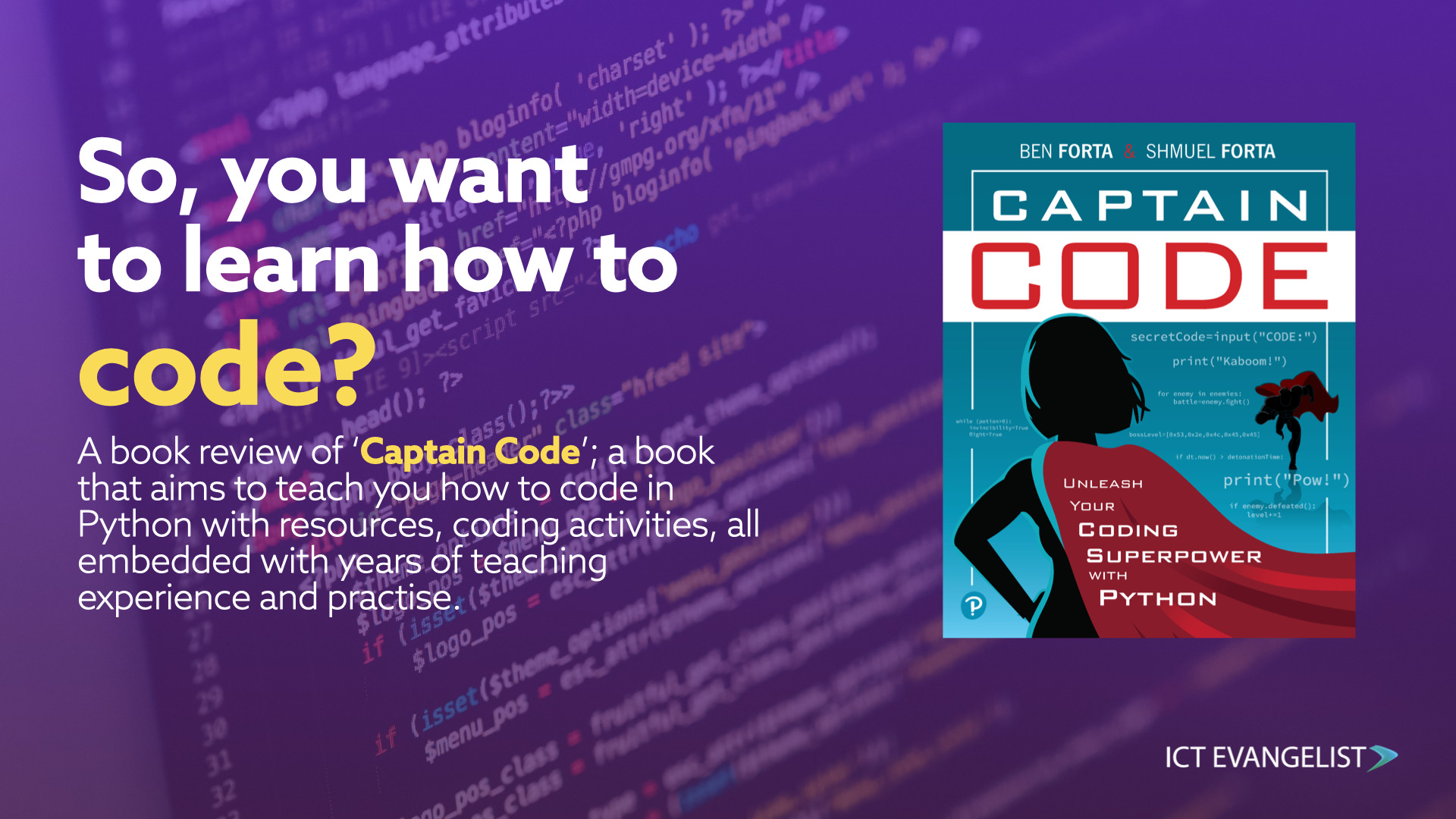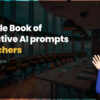
Teaching coding isn’t easy, I know, I did it for many years. It was particularly difficult for me because, like many teachers of ICT and Computing, it wasn’t my specialist subject. Sure, I had some coding experience from my youth, spending many happy hours typing in code from a magazine to make a ‘Choose Your Own Adventure’ style game into my ZX Spectrum (yes I am that old). Of course, it also then often meant many more hours painstakingly going through that code to debug it and find all of the typos. Still – the end result was always worth it. Even so though, when I started teaching GCSE and A-Level Computing it was a really steep learning curve.
Shift forwards some 30 years and coding languages have moved on considerably from the BASIC I used to type and if you teach Computing, particularly in secondary schools, then Python is definitely the language of choice for many. When I first started teaching, I genuinely wish I’d had such a great resource as the ‘Captain Code’ book by Ben and Shmuel Forta. It is just great.
“Captain Code” as the title and the branding on the front cover suggest, is not aimed at your 40+ years old adults wishing they could do more than just program in BASIC like they did in their youth, but squarely on the shoulders of teenagers, wanting to learn how to code. Its fun, engaging and approachable style, coupled with the many games you can create by working your way through the book, will capture the imagination and interest of young people the world over.
Written by the father and son combo of Ben and Shmuel Forta, this book resonates with me on many levels and not just on the whole father and son fun that I’m sure both Ben and Shmuel will have had in creating this treasure trove for Computing teachers. Transparency moment, but I’ve known Ben for a very long time now. I’m sure he’ll remind me of when we first met at a coffee shop in Soho, but as Senior Director for Educational Initiatives at Adobe and a former educator, Ben has been a driving force for creativity in education and the superb Adobe Express (formerly Spark) suite of tools that have been so impactful in education the last few years. Couple that with Shmuel, an innovative educator with a passion for coding and lighting a spark for creativity and FUN in coding, I knew the book would be a great resource for engaging young people in coding before I opened the front cover.
So what’s inside?
At the start of the book, the authors introduce you to the basic concepts of coding starting right at basics, but in an approachable language that explains things clearly and simply, with concrete examples.
What I also liked was that they share the place Python has as a programming language; sharing what sorts of activities Python is a good language for, but go on to say that if you wanted to code an app, Java or Swift would be more suited to that. They also quite rightly take the time to explain that whilst Python would not be the right language for that activity, the skills you’ll learn whilst learning Python are definitely transferrable to the exciting world of developing your own app.
Moving into the first section of the book, after you’ve walked through the basics of coding, you’ll find yourself taken through some basic terminologies and key terms, all whilst having a go at coding some little programs yourself. It’s a hands-on kind of book where you’ll learn about functions and variables, libraries, and using randomness as an important factor in game development – in their example, you code a coin toss game.
As you progress through each and every chapter, so your skills and knowledge and most importantly, experience, develop, all of which are supported with fun, easy to code (and learn) gaming activities. Of course, you then learn about AND and OR and IF, lopping code with FOR and WHILE and IF statements, again, all the while introduced to the topics in simple English, backed with key points, highlights and fun coding activities.
Moving on you continue to code some great games, all the while upping the complexity of the coding you engage with by creating games such as Secret Codes, Guess The Number and Rock Paper Scissors; they are all in there, explained, demonstrated and all with the code to support you as you continue developing your skills.
During the latter sections of the book, you learn how to take the basics you’ve learned to start to think about how to plan and map out your newfound skills to help you develop a much larger, complex game. They cover the importance of planning, mapping out your sequences and why it really matters.
It really is a decent book.
To sum up
Without giving too much of the game away (see what I did there?) this is a great book for anyone interested in developing their knowledge, understanding and skills in coding with Python. Furthermore, and this is where I think it can be really useful for education, I could really see this being a fantastic supplement to UKS2, KS3 or even supporting courses in Computing at GCSE. At worst, it would make a great friend for any teacher seeking to gain a few extra resources to support their curriculum planning around coding in their school.
Add to this that many schools, certainly from my experience of working in, teaching and leading on Computing, suffer from a considerable lack of curriculum time when it comes to ICT and Computing. Of course, we know its importance and would love to get more time on the curriculum to cover the breadth of the subject, but in reality, there is a shortage of both time and teacher specialists to teach the subject. So, with that in mind, I could well envisage this book being a great study or class book for students seeking to dig beyond what they have access to in school and provide a great support for fun, innovative and interesting classroom and homework activities for students to dig in to.
Want to learn more? ‘Captain Code’ is available from all good book stores and if you wanted to grab a copy to see why I’m excited about this book, you can do so here.
Transparency: The link I have shared to the book is an affiliate link to the book on Amazon, so if you choose to buy a copy, I might, in about 3 months, see very little from it.
















